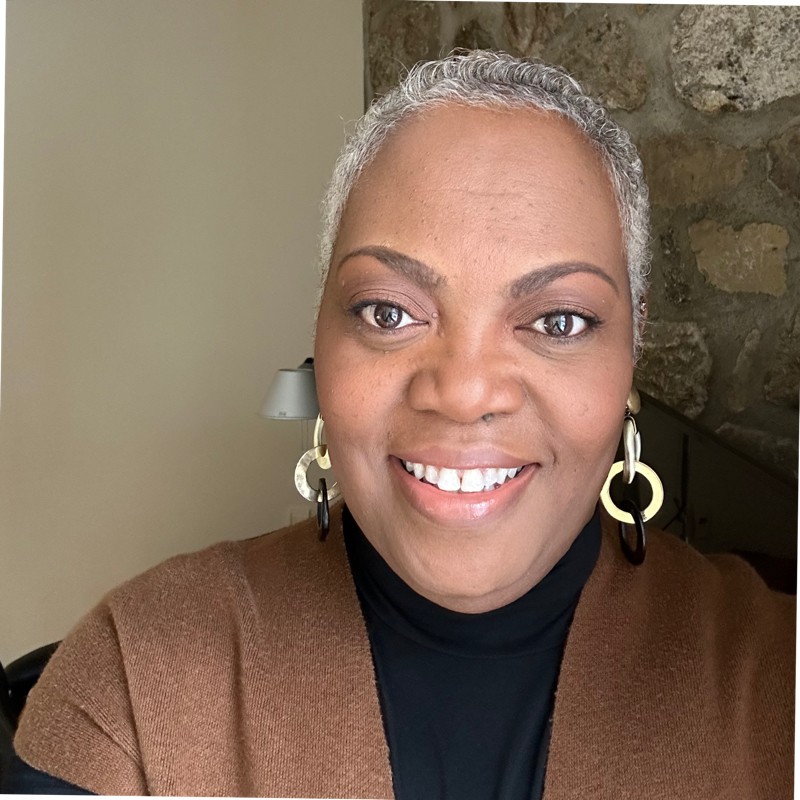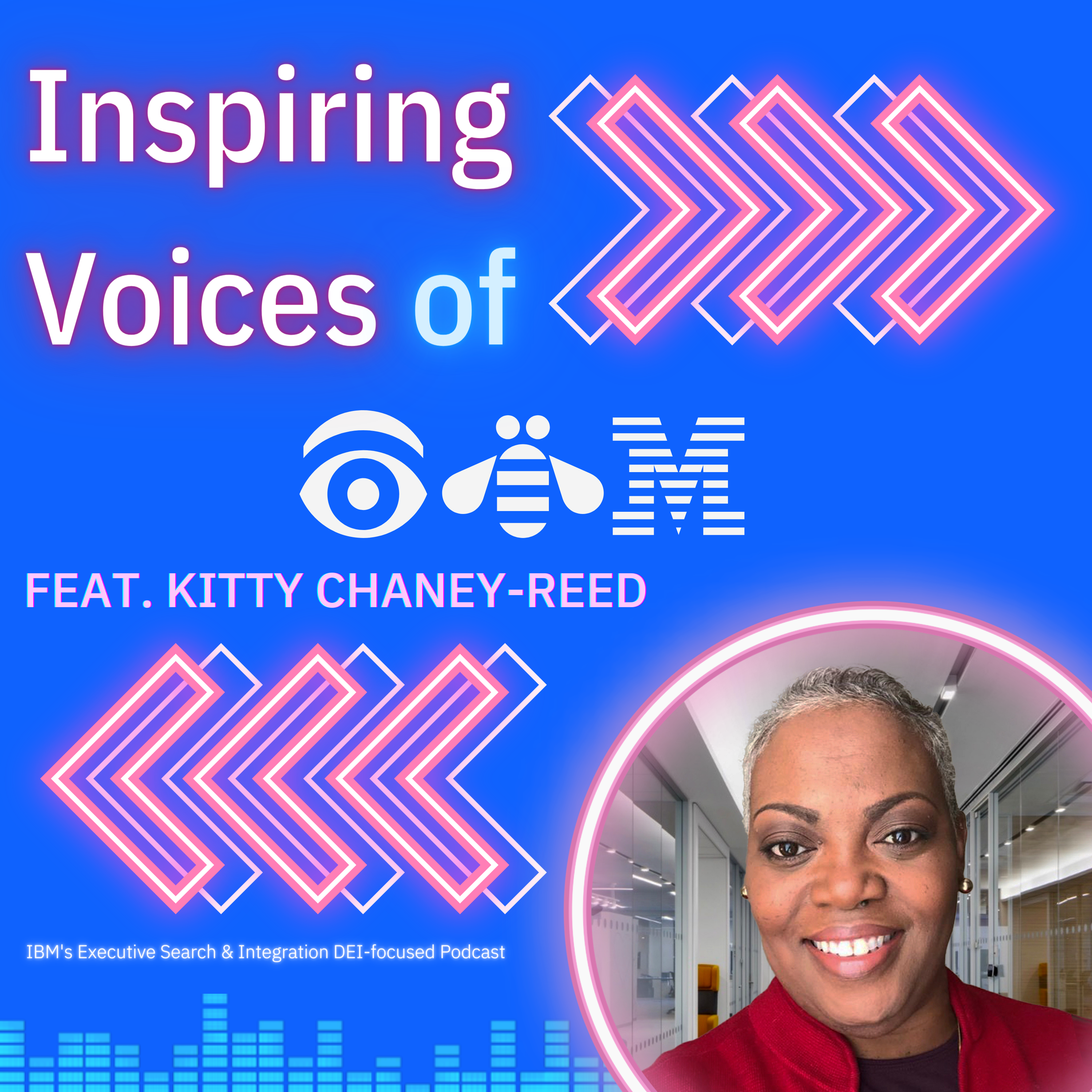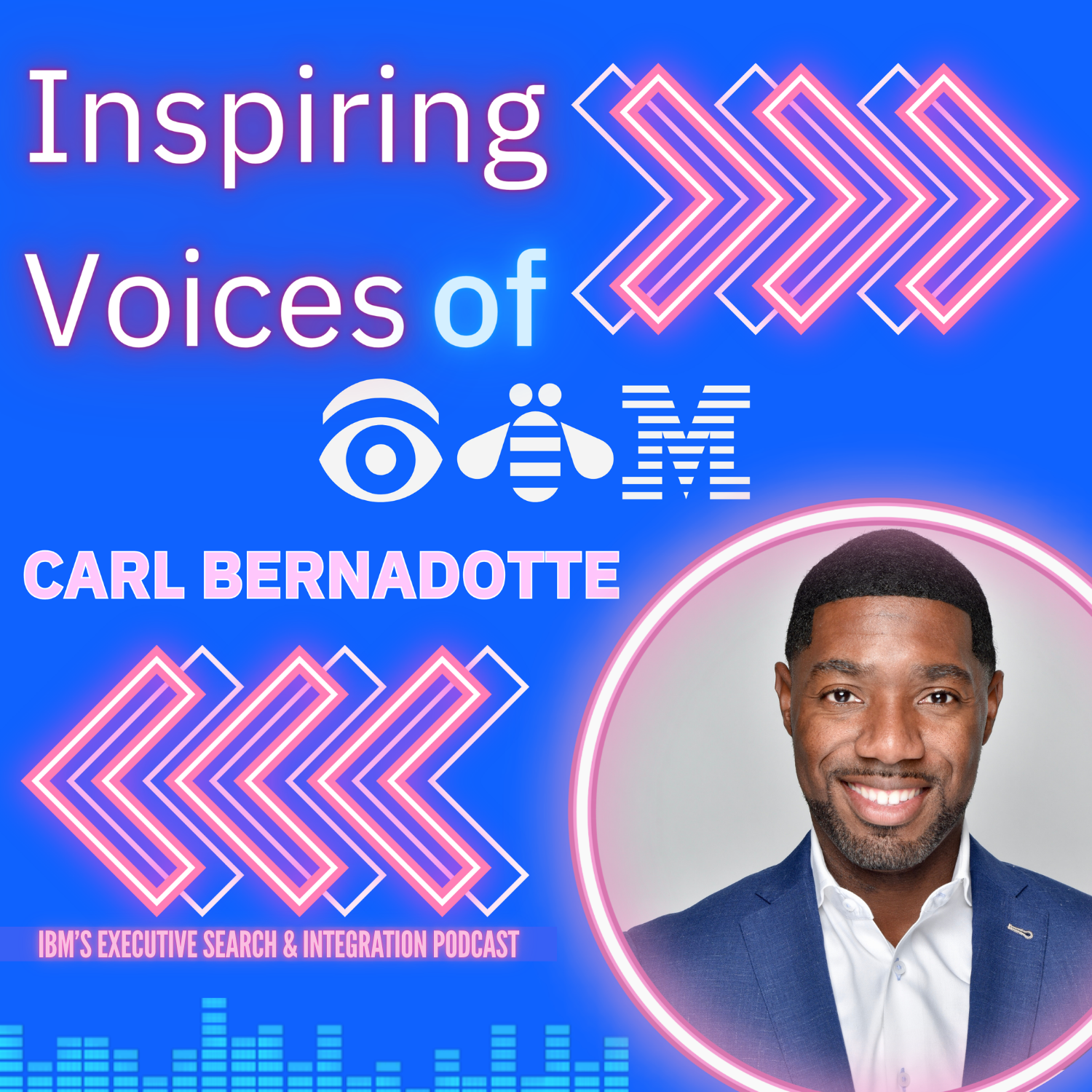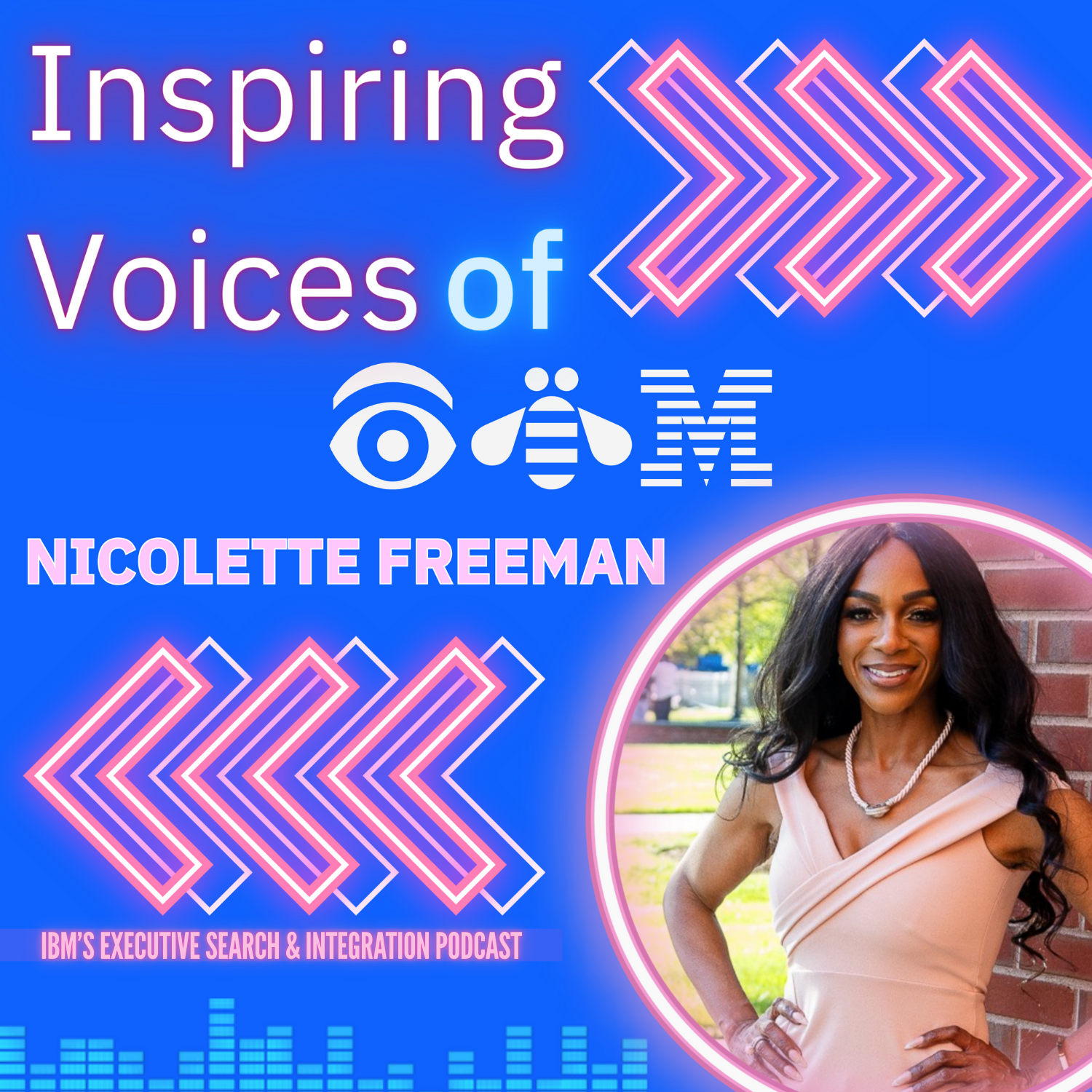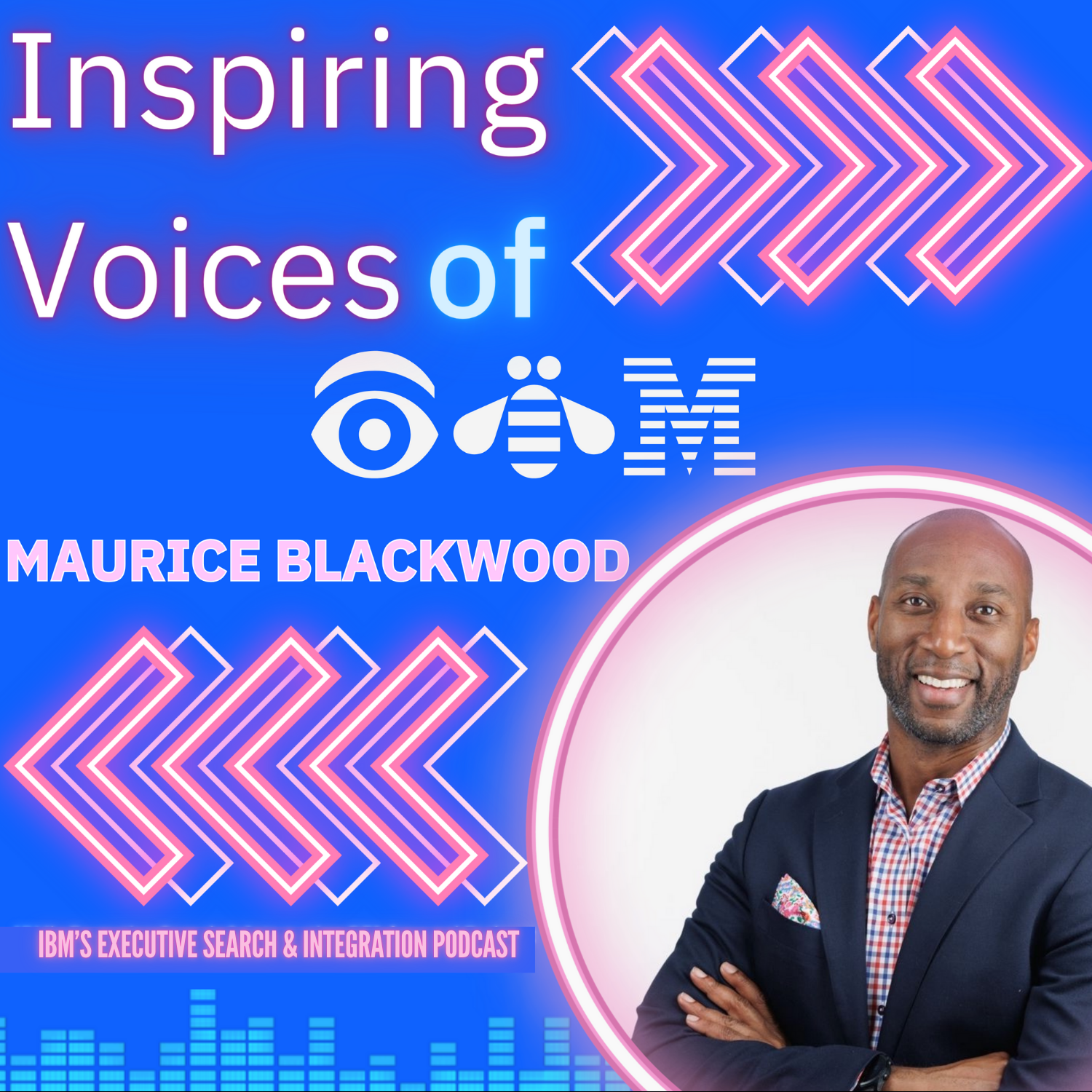Inspiring Voices featuring Kitty Chaney-Reed
- 0.5
- 1
- 1.25
- 1.5
- 1.75
- 2
Welcome: Welcome to Inspiring Voices, the podcast inspired by IBM's Executive Search and Integration team, showcasing diverse and influential leaders and their impact in the world.
David Jones: Welcome to episode one of our global storytelling podcast, where we will be highlighting experiences of our diverse executives and showcasing IBM's inclusive culture. Kicking off our series with one of IBM's leading ladies, we are absolutely thrilled to be joined today by Kitty Chaney-Reed, who most recently took up the role of Chief Leadership, Culture and Inclusion Officer. Kitty, Welcome. Thank you again for taking the time out of your busy schedule to talk to us today. How are things?
Kitty Chaney-Reed: Things are fantastic. Couldn't be any better.
David Jones: Kitty, you've had such a fantastic career journey with a wide range of the expertise in technology and business, gained from more than 25 years of hands-on experience and solution design and implementation, service delivery, client services, shared services, business transformation, mergers and acquisitions, human resource operations, and retail operations. Your resume already reads like a Hall of Famer and you're just getting started in the new role central to IBM's identity. Your experience teamed with a real passion for diversity, equity, and inclusion have already had a profound impact on IBM and know that me, along with many, many others are very much looking forward to your leadership in this next chapter of your journey.
Kitty Chaney-Reed: Thanks so much. I appreciate it. When I hear you talk about me like that, I'm like, "Who is that lady?"
David Jones: It is so much deserved, and thank you so much for your time today. I want to start by going back to the beginning of your journey here at IBM. When our executive recruitment team contacted you for a VP role back in 2017, what made you choose IBM and what keeps you here?
Kitty Chaney-Reed: That's a great question, David. I have to tell you that my first instinct was "Not interested". I remember getting the phone call from a recruiter who I think is still here, Eric Snyder. Eric said to me, "Boy, do I have this great opportunity that you are perfectly suited for." I was like, "Okay, I'm listening." I remember him talking about it, not like a job, but a real opportunity. He described it as an opportunity to transform a very significant piece of our business, which was the Quote-to-Cash space for the Americas. He talked about it in the context of what he had learned about me and my leadership style, I guess through networking and maybe through LinkedIn. I remember thinking, "This is different". You get calls from recruiters all the time, but very rarely do they talk to you in a way that compels you to really consider the opportunity as maybe the opportunity to do the best work of your lifetime or your career. Eric painted that picture for me, and I remember saying to him that I was going to keep listening. The way he positioned it was probably the most compelling piece. Then the second piece of it was the research I did on IBM and the history we have around diversity and inclusion. I think those were the two things that compelled me to really consider the opportunity. Then thinking about the size of the company and thinking about the limitless opportunities that might be available to me beyond the role that I was being recruited for. I think those are the three things that compelled me to seriously consider the offer. Then I would say in terms of what keeps me here, it's kind of the same thing. I've had an opportunity to do three or four very exciting roles here that were all around transformation and all of which gave me the opportunity to use creative license to reimagine the work. I think people don't get an opportunity to do that very often. So I consider myself immensely blessed to be able to do it not one time, not two times, not three times, but four times. So I just think the opportunity has been priceless.
David Jones: Can you describe what stands out to you about the culture here at IBM?
Kitty Chaney-Reed: Lots of things stand out. I would say the thing that I value the most is the fact that you have the opportunity to create, you have the opportunity to reinvent and really the opportunity to lead in a way that I've not seen at other companies. I think a lot of that is dependent upon your own personality and leadership style. But I don't think I've ever been faced with a situation where I thought, "I can't do this". "The system won't let me do this", or "People won't allow me to do this", or "There are constraints around me reimagining the future". So that's really the thing that I think is remarkable here. There are many opportunities we have around our culture, but this license we have to re-engineer, recreate and create is something special.
David Jones: That's holding multiple high profile and highly visible roles since joining, as you just mentioned. How do you feel IBM set you up for success as a senior leader and is it what you expected?
Kitty Chaney-Reed: So I would say my experience here has been different than I expected. I remember being deathly afraid of coming to work for a company that was upwards of, at the time, before the Kyndryl split it was close to 100 billion dollars in revenue. I came from a company that was six or seven billion dollars in revenue. So I remember thinking to myself, "Can I do this? Is it going to be really hard and is it going to be possible for me to be successful here?". In my first job I had, Quote-to-Cash for the Americas, which was 45 billion dollar worth of revenue at the time. I remember thinking, "Ooh, this is a lot. I've done this job globally at a company before, I've done different dimensions of this job, but can I do it at this really, really big company?" After being here for, let's call it 90 days, six months, I was like, "Oh, I can do this. I can really do this." I think what I figured out is that IBM operates like a lot of small companies within a big company. I think that was a decoding of sorts that I figured out over time with the help of others. But over time, just through matriculating throughout the company. I remember being very relieved, taking a deep breath and thinking, "This is good." So a big part of my success as a leader I think was a fast start. I have to say our HR team was really critical to me being set up for success. Deb Adams, Sonya Miller, who's not here any longer, they were two people who partnered with me to make the right connections, to meet the right people, to understand the right processes. I remember Sonya actually bringing me my laptop and sitting down with me and saying, "Okay, here are the things you need to load on your... Let's make sure you get in terms of productivity." I just remember feeling cared for. Then the onboarding team, I had a 100-day plan and every 30 days I had a check in with somebody who was dedicated to me. I also remember thinking, "Does everybody get this kind of attention that's a new executive?" I remember also getting my box in the mail that had all of my IBM goodies, but most importantly it had a letter from Ginni Rometty about what it means to be a leader and an executive at IBM. So it set the bar high, but I knew exactly what was expected of me even before I met my awesome manager at the time, Brian Truskowski. He was amazing. I remember him telling me that he had not made an external hire in probably 15, 20 years and how important it was to him that I was successful. He was always available and gave me so much room and so many different opportunities to contribute. If there was a special project or if there was something that they needed outside, any perspective on, he was like, "Kitty, how do you feel about being a part of this or that project team?" Lastly, I'll say Drew Valentine was somebody who reached out to me early and basically encouraged me to get involved in the Black community. He made sure that I was aware of all the Business Resource Groups and he wanted, I know now, assess my interest in being a part of the council. He was just really, really good about setting the stage around the willingness for IBM to embrace me as a person of color and to really cater to my passions around diversity, equity, and inclusion.
David Jones: That's fantastic. Kitty, I love the way you call out the names of the individuals that you've come across on your journey. I think at IBM sometimes it does take a village and the fact that you continue to not only remember, but speak so highly of those individuals really brings life to your journey. I think it's fantastic to hear. Was there a defining moment or catalyst that put you on your current career journey?
Kitty Chaney-Reed: Probably. So people hear me talk about my husband often, but my husband is the person that I credit with my entry into technology. In my background, I think you heard that I started my career in retail operations. I started as an executive trainee with Macy's department stores and worked my way up and around. But my husband saw something in me that I didn't even see in me. He was like, "Ah, I saw this job and I think you should consider it. Have you ever really thought about technology?" My husband is a techie. He was like, "Have you ever thought about technology?" I'm like, "No, I don't even know how to use a computer." This was in the late eighties, early nineties. I remember him saying to me, "You should try it. You should think about it." I kind of dismissed it. So when the opportunity arose, I had a decision to make about leaving a retail company and going to work for a startup. I remember being terrified. I also remember thinking, "They're playing company. It's not a real company. I can't leave my real job to go work for a company that has only 40 employees." I remember having that discussion with my husband and he was like, "You have zero to lose and everything to gain. You think like a techie." Because I'm the tinkerer. I'm the person who's always trying to figure out how something works and how to make it work better. I'm a logical thinker. I'm always thinking about how we operationalize things versus just writing processes. He saw that in me and so I did it. I actually made the leap after a lot of coaxing and it was the best thing that I could have done. Then I would say the secret to me rising so quickly within the ranks, and I guess quickly is a relative term because I don't think it was quick at all, but I think other people think it was quick. But me rising through the ranks was me asking difficult questions and me raising my hand to do difficult things. That's always been my roadmap for my next opportunity.
David Jones: Okay, I'm going to need to talk to your husband because his power of influence seems very strong. I had a similar Louis Vuitton situation at home with my wife and it didn't go so well. So I'm going to need to give him a call and see if he can help me out on that one. My next question is around something that I know you have a true passion for both inside and outside of IBM, mentorship. As the executive sponsor for the Atlanta Global Women and IBM initiative serving on IBM's Black Executive Council, executive board member with Women in Technology - Atlanta and more recognition than I have time to reference - can you tell us a little more as to why mentorship is so important to you and where this passion comes from?
Kitty Chaney-Reed: That's an easy one. Mentorship was something that I think I can attribute to my personal success, like my success as a human being and also as a professional. I lived next door to a teacher. She was an art teacher, and she just took an interest in me. I'd see her at school of course, I was in her art class because I loved to paint and to draw and it was a fun elective. But for whatever reason, she took an interest and she would just take me places and do things with me. She took me to my first play. She took me to my first fancy restaurant. I remember her taking me to my first museum. So all of those things were things that she just saw in me. I can't even explain why. Maybe it was this thing I have about asking Why or asking lots of questions. Maybe that's what drove the connection between the two of us. But she was amazing for me early on. I think I was in junior high school when we met, and I lived in a small town. So the role models and the mentors I had were people at church and maybe a nurse, definitely not a doctor, definitely not technical people. Teachers of course, and principals. But that was the height of my exposure in terms of people that I saw doing things professionally. I remember her asking me, "So where are you going to college?" I was like, "College?" I hadn't even thought about college. It was the first thought I had of "I can be more than I am. I can be more than the people I see." I've always had a passion for reading, which she fed. I just remember thinking at that point in time, maybe I was 12, 13 years. I remember creating a very clear picture of what I wanted to be when I grow up and I'm living that dream. So I can't express enough how important it is for us to invest in mentorship because it'll create a possibility for growth and for greatness that I think some people never achieve or never dream of because they can't imagine it.
David Jones: Thank you for sharing. I think you lead by example, but continue to reach back. I think that's an amazing character trait. I know not everyone does, and I appreciate you not only for the things that you say, but the things that you do. I've been watching you from a distance over the past several years and you continue to amaze not only me, but a lot of us as well. I look up to you. So speaking of inspiration, kind of segue into my next question. Who has been your inspiration, personal or professional, and what would the reasons be behind that inspiration?
Kitty Chaney-Reed: So people are usually surprised when I say this, but do you know, well, I'm sure you do. Tyler Perry? So he's an inspiration to me for one particular reason. He had a dream, he had a vision and he just didn't give up. He lived in his car, he borrowed from people to put on productions, but he stayed the course. He invented this character that was based on his real life family experiences, and he made an enterprise out of that character. He is a multi- billionaire because he dreamed a big dream and he committed to the dream. Every time I see him doing something amazing, I can't help but pause and go, "We need 100 Tyler Perry's." That to me is just remarkable. The interesting thing for me is I don't like his movies, I really don't. I'm not thrilled by them. But I admire his tenacity, his commitment, his vision and what he's doing for Black America. Not just Black America, but for underrepresented minorities. Him purchasing a piece of land that was really a confederate piece of land in Atlanta and building a multi billion dollar entertainment complex and studio complex there and employing hundreds and thousands of folks is just amazing to me. Amazing. I can't even fathom how you envision something like that and how you have the fortitude to make it a reality. And for that, I am just forever grateful to be honest, because it's an inspiration to me. It's an inspiration to our children and future generations. So more power to Tyler Perry and all the folks like him.
David Jones: Absolutely. I love the way he's been unapologetic as well, putting out the content that he believes in, regardless of what anyone has to say. A fantastic choice. Thank you for sharing. Next, you have recently moved into the role of Chief Leadership Culture and Inclusion Officer, please say the chief C-suite standup. What impact are you hoping to make here?
Kitty Chaney-Reed: You know what, I pinch myself daily when I see my title at the bottom of my email. The reason I pinch myself is because this is work that I've done on the sidelines. This is work that I've done in my spare time, not even spare time, discretionary time, let's call it that. I never thought that I would have the opportunity to do this kind of work for a company as iconic as IBM. So this is me living my best life. So what I owe IBM and IBMers is the best work we can come up with, the best work in the industry, not just the best work we can come up with within the walls of IBM, but the best work we can do in the industry. So my dream is really for us to be a trailblazer, continue to be a trailblazer in the areas of leadership, culture, and inclusion. To me, it looks like this. So when we advertise a job, I want us to have so many applicants that we can't hold them all in our database. I want people to talk about us as pioneers in diversity, equity, and inclusion. I want us to be talked about and admired when it comes to the culture we've created and the inclusion scores that we can boast and the engagement scores that we can boast. Most of all, I want all of that to contribute to an amazing position in the market and in the industry that is unparalleled when it comes to AI and hybrid cloud. That's what I want. That's what I want us to contribute to as a leadership culture and an inclusion team. I think we're on our way to that. So for all of those things, I'm eternally grateful, and again, I have to pinch myself every day.
David Jones: My last two questions are more personal. As I know you are a mother and wife, on top of your several day jobs we've been discussing. As a senior leader, how do you ensure a healthy work life balance?
Kitty Chaney-Reed: So first of all, I don't think there's any such thing as work life balance. I think that the first thing we have to contend with is it's not achievable. I like to think about it as work life integration. How do you integrate work and life in a way that allows you to be a healthy professional and a healthy individual? So I would tell you that I also don't believe that you can have it all. I believe you can have it all, but not at the same time. If you've listened to anything I've said, you've probably heard me say that before. So what I try to do is prioritize. I've been accused of being ruthless when it comes to prioritization. So at home I prioritize family and I prioritize having a comfortable and welcoming home. So I invest my time and energy in those two things. Really, you can come to my house on any Sunday and get a full- blown Sunday dinner, and you can have it with me and my family because we all convened there almost every Sunday. So the other thing is on the professional front. Again, you can have it all, but you can't have it at the same time. I've always been what I consider a high achiever, or at least I aspire to be. I think the secret to that is clarity. Understanding very clearly what you are going to do, being accountable for delivering those outcomes and making certain that the people you work with and for, understand the purpose of the work. So clarity, accountability, and purpose. I think those are the guiding principles I've used forever. I think when you have those things lined up, it's kind of easy to prioritize properly the work you do. Just as I said, home and family are critical to anybody's wellbeing, but especially mine. I have three boys and a husband, and my mom lives with us as well. So nothing's more important than them feeling like they're home when they're home. That their mom, their daughter, their wife is going to take care of them. So I make sure I do that. I make the time to do that.
David Jones: Lastly, today, what advice would you give to your 21-year-old self?
Kitty Chaney-Reed: This is also easy - Dream bigger. I think if I had started sooner to visualize and dream about my future, that maybe I'd be running a company by now. Maybe I'd be like Tyler Perry, I'd be a billionaire or at least a multimillionaire. On a serious note, I do think dreaming is important. I think you can't achieve what you can't dream. So if at 21 years old I remember thinking, I'm going to be a great leader. I'm going to be doing exactly what I'm doing today, leading teams and making decisions and contributing in business. I'm doing exactly what I dreamed I would be doing. So I feel like the power of a dream is infinite. At the end of the day, you can go as high as you can dream. So that's what I'd say to 21 year olds around the world. "Dream big, really, really big."
David Jones: Kitty, this has been an absolute pleasure. Your story serves as both inspiration and motivation for so many of us. You continue to be a beacon of light for IBM and an example of what a real role model looks like. Thank you again for your time, your candid responses, and not only to continue speaking up on the issues that matter, but walking it like you're talking.
Kitty Chaney-Reed: Thanks so much. It was my pleasure.
Thank you: Thank you for listening to Inspiring Voices. If you're a senior leader who is interested in learning more about our inclusive culture and leadership at IBM, please reach out to us via email at ibmexecsearch@ibm.com. We can't wait to hear from you.
DESCRIPTION
Brought to you by IBM’s Executive Search & Integration team, Inspiring Voices is a podcast series that showcases great leaders who tell their personal life story, career trajectory and how they’ve made an impact throughout.
In this episode, we listen to the story of Kitty Chaney-Reed, IBM’s Chief Leadership, Culture and Inclusion Officer. In her own inspiring and humble words, Kitty shares her journey, her aspirations, inspirations, mentors and – ultimately – how she got to where she is today. She also provides her view on leadership and success factors, inspiring us to make an impact both personally and professionally.
If you want to hear more from Kitty Chaney Reed, check out her interview about allyship in the BE EQUAL podcast.
Key Takeaways:
- [00:08 - 00:25] Welcome to Inspiring Voices
- [01:47 - 04:59] Why IBM, and Why IBM still.
- [04:59 - 06:14] What stands out in the IBM culture
- [06:14 - 11:14] How being set up for success can look like
- [11:34 - 14:18] One of those defining moments
- [14:54 - 18:00] The power of mentorship
- [18:11 - 20:57] Where inspiration comes from
- [21:09 - 23:30] Making an impact as a leader
- [23:33 - 26:25] There is no such things as a Healthy work life balance
- [26:24 - 27:45] Our guests advise to her 21-year-old self
Today's Host
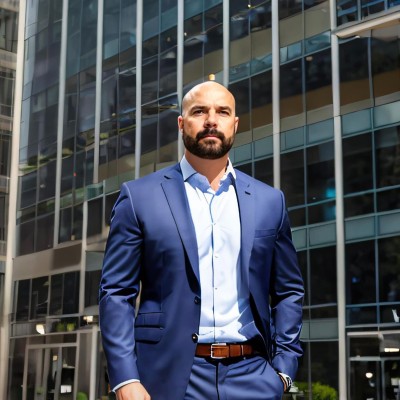
Christian Zani
Today's Guests
